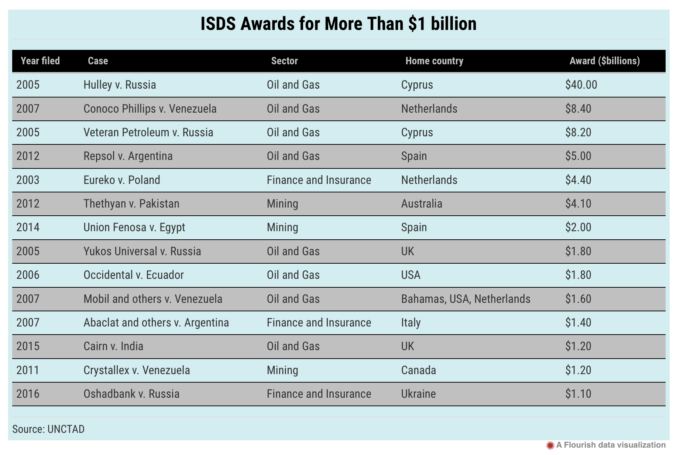Next week international negotiators are meeting in Glasgow, Scotland to develop solutions to the climate change threat. But one major obstacle to global sustainability will be largely absent from the discussions: the investor-state dispute settlement (ISDS) system.
This system gives transnational corporations the power to sue governments over actions — including policies to address climate change — that reduce the value of their foreign investments. Allowing corporations to continue to wield this power could undermine whatever agreements might be reached in Glasgow.
How does this system work? Clauses in more than 2,600 Free Trade Agreements (FTAs) and Bilateral Investment Treaties (BITs) allow foreign investors to bypass domestic courts and sue sovereign states in international tribunals for millions — and even billions — of dollars.
The World Bank´s International Centre for Settlement of Investment Disputes (ICSID) is the most commonly used of these arbitration tribunals, followed by the United Nations Commission on International Trade Law (UNCITRAL). Made up of highly paid, three-person panels of corporate lawyers, these tribunals should not be mistaken for courts of law. This privatized system has little regard for precedent, truth, or justice.
Companies in the highly lucrative natural resource extraction sector take greatest advantage of ISDS. Oil, gas, and mining companies have filed around 25 percent of all known claims to date, and 29 percent of all ICSID claims in fiscal year 2021.

The growth of suits brought by extractive industries has been exponential. Since 1995, when an extractive industry brought their first case under an international agreement, they have brought claims demanding at least $195 billion and won awards totaling at least $73.2 billion. These figures are based on available data from ICSID and UNCTAD. Other arbitration tribunals do not publish information about cases or awards.




